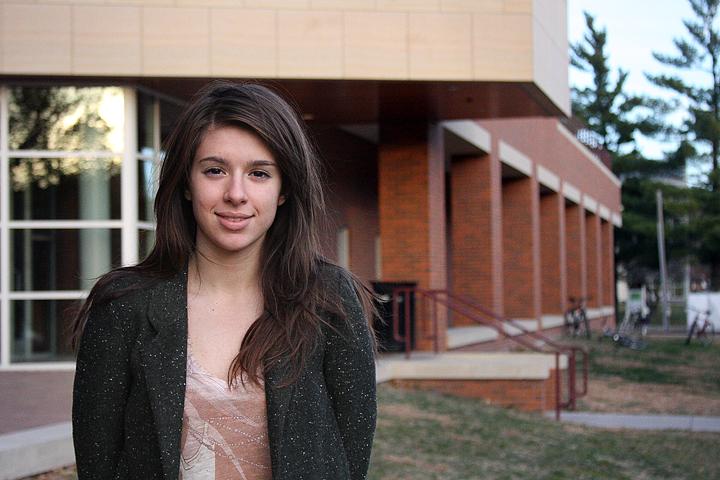Remember those Student Initiatives we voted on so long ago? Well, for those directly involved in the process, they are not such a distant memory. Those involved with hot-button initiatives regarding issues such as floor recycling, faster internet and free human papillomavirus (HPV) vaccines are working through the various steps required to complete these student goals. Student Initiative Fund (STIFund) is also hard at work as they deal with almost twice as many initiatives as they have in the past.
STIFund is a multi-faceted organization that works with many committees and administrators on campus to get the student initiatives passed. It is unique in that is does not have a large budget but instead relies upon looking for funding through various other campus and community organizations.
“Usually we like to co-pay with others so we have this idea of shared responsibility,” said STIFund member Stephan Zhang ’13.
Emily Blythe ’12 and Dana Utroske ’13 are in the midst of Grinnell College’s recycling overhaul. Their original initiative—to make recycling bins more available at parties, in dorms and in certain academic buildings—has been slowed as Facilities Management looks into a new campus-wide recycling option. An outside paper company has offered to buy our recycling.
“Instead of seven bins, we would have two bins. It’s definitely a simpler system,” Blythe said.
If this change occurs, the original initiative would be significantly altered. As Student Environmental Coordinator, she is well placed to enact significant environmental change on campus. Utroske initially wrote a separate initiative that was similar enough to that of a previously suggested environmental initiative that she and Emily decided to join forces.
“I’m the kind of person who, when leaving a room, will take a piece of paper out of the garbage and put it in the recycling,” she said. “I knew that just telling people to recycle would not work.”
Both students note that Grinnell scores very poorly in recycling when compared to other colleges.
Blythe and Utroske have scheduled a meeting with Assistant Dean of Students and Director Of Residence Life & Orientation Andrea Conner to discuss the implementation of the smaller aspects of the initiative that are not as closely related to FM’s decision to adopt a new recycling program.
Faster Internet is of great concern to anyone who has been forced to sit through the obnoxious buffering of his or her favorite TV show or been unable to play a favorite video game online. Alexander Cohn ’11, Aaron Todd ’11, Reed Nightingale ’11 and Shitanshu Aggarwal ’11 proposed a student initiative designed to provide students with more bandwidth and therefore faster processing as well as create a greater bridge of communication between the Information Technology Services (ITS) department and Grinnell students. Although the Internet speed has increased slightly, it is unclear whether that is a result of the initiative because it happened before voting results were released but after the initiative was conceived. Aggarwal indicated via email that the latter has not been successful as of late.
“ITS has still not addressed the issue of a non-existent traffic shaping policy, and might need some poking. It is still opaque why they block or limit certain things,” he wrote.
Nightingale expressed that he and the others involved with this initiative have met with STIFund but very little progress has been made so far.

The tutorial class Vaccines and Society decided to write an initiative advocating free HPV vaccines for all students the day before initiatives were due. Artemis Gogos ’14, Ana Novak ’14, and Alejandro Scaffa ’14 collected 100 signatures in under 24 hours. Now, Gogos is working with Student Government Association (SGA) president Ben Offenberg ’11 and Conner to find funding for the immense project.
“There is a program through the Iowa Public Health Center which allows all people under 19 whose insurance does not cover the vaccine to get it for free,” Gogos said. “So we’re going to try to fold that into [New Student Orientation].”
The idea is to provide shuttles to new students who wish to go get the vaccine before they turn 19. Beyond this state program, the HPV initiative is at a loss to find the funds that will continue to support such a costly program—the vaccine costs $430 per person. However, the administration and student body have demonstrated their overwhelming support for the initiative. Over 82% of voters thought that the HPV vaccine should be readily available to students.
STIFund has already implemented many initiatives, having successfully guaranteed new hot tub regulations, floor condoms for student staff, and six more campus bikes.



















































